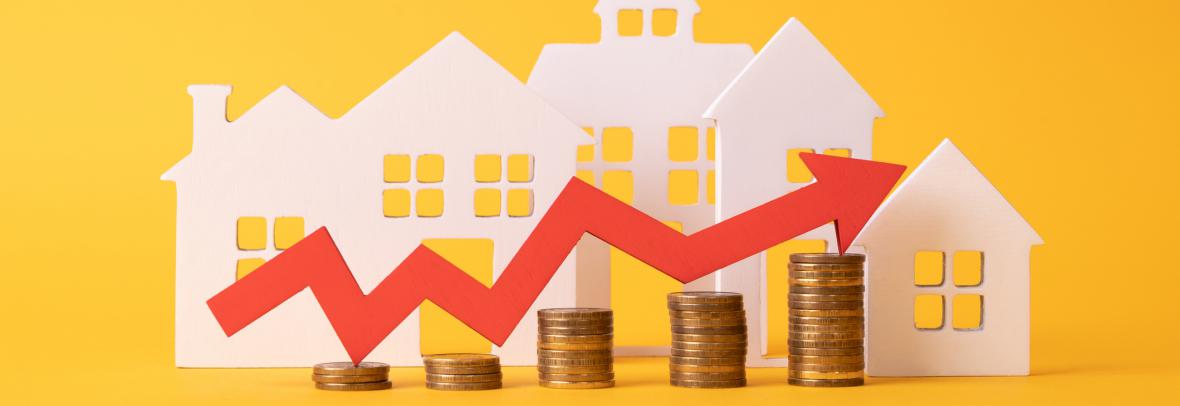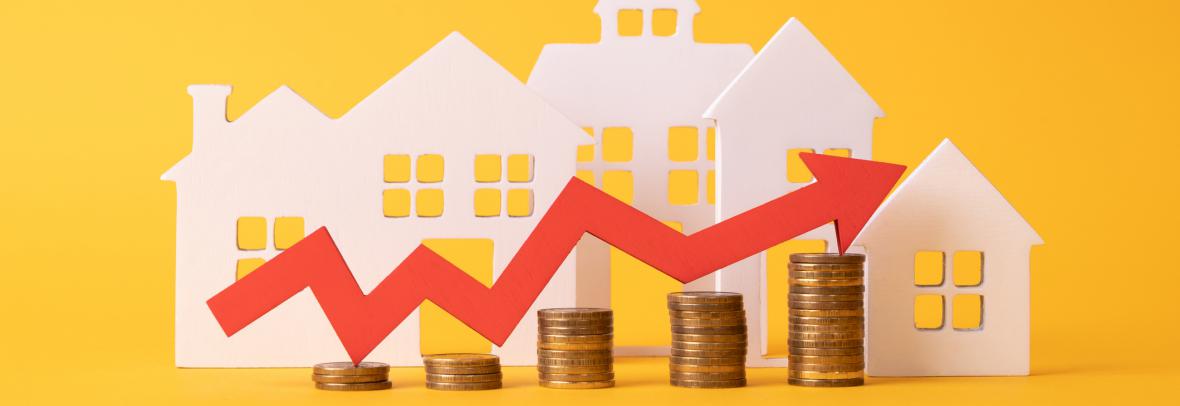
It’s easy for non-real estate people to watch news stories and think, “The market’s crashing.” But it’s just slowing during a market correction and still up year-to-year.
ORT LAUDERDALE, Fla. – 2021 was a record year for real estate in South Florida, yet the last eight months of 2022 have been about the market slowing. Questions linger as to how bad the decline in the market is and whether it’s headed for a crash.
There’s little doubt that the market has slowed over the past six to eight months: Closed sales are down as buyers grapple with rising interest rates, it’s taking longer to sell a home, and bidding wars are not as common as they once were.
That doesn’t necessarily mean that the South Florida market is crashing.
“There is a lot of confusion when people talk about the slowdown. They automatically think the market is crashing, but it’s not,” said Roni Sterin with the Keyes Company in Weston. “The market did correct itself because it needed to.”
Comparing 2022 to the pre-pandemic 2019 housing market can add additional context to what’s happening now, since 2021 was so exceptional.
“It [2021]was such a national phenomenon that comparing our data to last year, the shift looks very severe in isolation,” said Bonnie Heatzig, executive director of luxury sales at Douglas Elliman in Boca Raton. “Now, the pendulum is starting to swing towards a more normal market.”
To gauge where the housing market in South Florida is, the South Florida Sun Sentinel looked at data from 2019, the most recent “non-pandemic” housing market, and compared it to 2022. We considered trends in median prices, inventory levels, price growth and how long it takes to sell a home.
Median sale prices are stabilizing
As of October, the most recent numbers from the Broward, Palm Beaches and St. Lucie Realtors show that while the median sale prices of single-family homes in the tri-county area are still showing double digit year-over-year increases, on a month-to-month basis, the prices have either started to decline or moderate.
It’s not indicative of a housing crash or a decline, rather it signifies that the median sale prices of single-family homes in South Florida are on their way to possibly stabilizing.
“When people look at houses online, for example, they see that the prices are coming down and they get the mindset that the market is crashing,” Sterin said. “What they don’t see is that the same house that sold in 2020, or 2021 or even 2019 is still above the market.”
On a month-to-month basis, home prices in South Florida currently look like they are in the beginning stages of stabilizing. For example in Palm Beach County, the median sale price of a home in July was $600,000, before decreasing to $565,000 in August. In September it reached $580,000, before decreasing to $570,000 in October.
By contrast, prices in Palm Beach County were relatively flat on a month-to-month basis in 2019. In July, August, and September the median sale price of home was about $355,000. It increased to about $359,000 in October of 2019.
And prices now, while in flux, are significantly higher than they were in 2019.
In Broward County, the median sale price of a home is 49% higher than it was three years ago. In Palm Beach County, it’s about is 58% higher and in Miami-Dade County it’s about 57% higher.
While it takes longer to sell a home, it’s still faster than three years ago
A large marker of the 2021 housing boom was how quickly homes flew off the market as buyers rushed to put offers on a home, scared to miss out on lower mortgage rates. Now, buyers have grown more hesitant, in part because they have more to choose from as inventory levels have risen. As well, higher mortgage rates have pulled some buyers to the sidelines, cooling the frenzy.
Due to this, it’s taking slightly longer get a home under contract, according to the latest numbers from the Broward, Palm Beaches and St. Lucie Realtors.
In 2022, the median time to contract for a single-family home increased in Palm Beach County to 28 days, in Broward it increased to 27 days and in Miami-Dade, it increased to about 30 days.
However, homes are still selling faster than they did three years ago. In 2019, it took about 50 days to get a home under contract in Miami-Dade County, 46 days in Broward County and 54 days in Palm Beach County.
“It’s no longer the market in which properties sell in five days. It’s more that properties are still on the market for maybe one week, or two weeks,” Sterin said.
Inventory levels still low
Buyers have started to see more homes come on the market over the past few months as sellers rushed to list their homes to try and catch the wave before interest rates cooled the market.
2021 was marked by record low inventory levels, with most of the tri-county area seeing a little over one month supply of homes on the market at a given time. Now, there is almost double the amount of homes there were a year ago. Currently, there is about three months of supply of homes in the tri-county area.
While the jump has been significant, it’s still well below the supply of homes on the market in 2019. Buyers have more options now than they did a year ago, but it’s still nowhere near a balanced market, which experts say is about six months of supply on the market. And the increase of supply isn’t enough to cause the market to crash.
“The inventory is not bloated,” Heatzig said. “When the frenzy stops and the inventory piles high, then we have a crisis. We do not have that now.”
The future of the housing market
For the most part, experts say that despite the rebalancing, the housing market in South Florida is still strong and unlikely to crash.
The current housing market has been driven in large part by low inventory levels due to years of underbuilding, intense demand from families looking to relocate and until recently, record low mortgage rates. The market crash a decade ago was caused by risky lending practices and too much supply on the market.
“Crashes occur when there is an extreme imbalance between supply and demand. Currently we have the opposite. It would take an extreme movement in the market to transition from where we are today to a market on the verge of a crash, “ said Tim Costello, chairman & chief executive at Builder Homesite Inc.
© 2022 South Florida Sun-Sentinel. Distributed by Tribune Content Agency, LLC.
Go to Source
Author: kerrys



